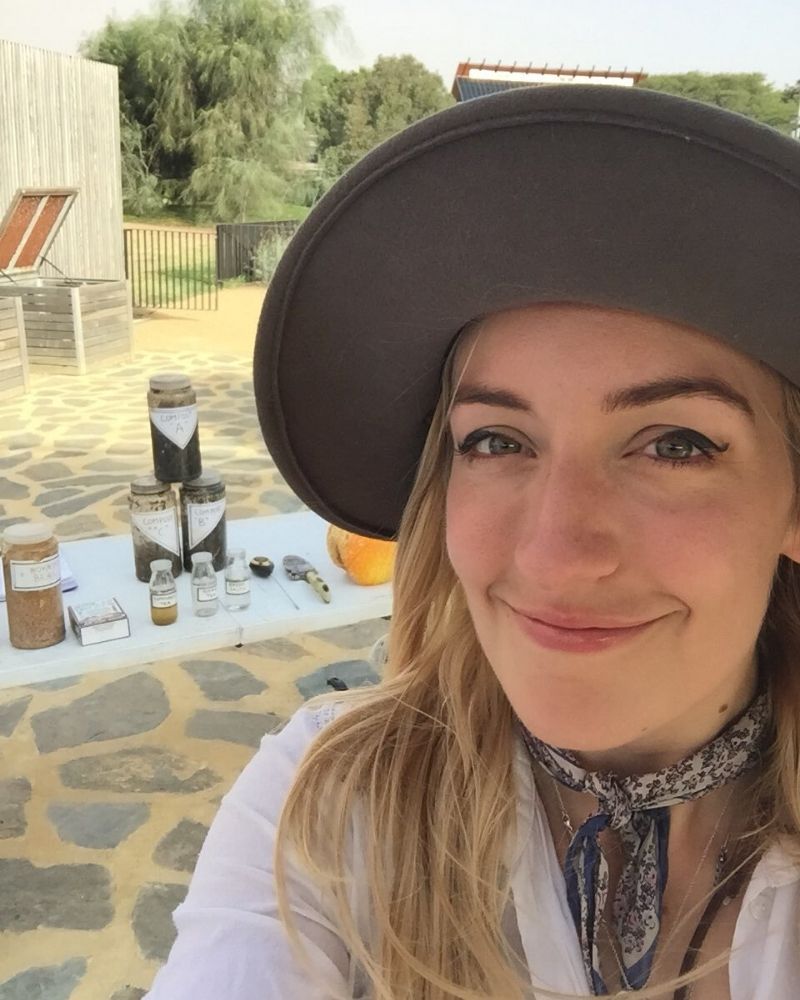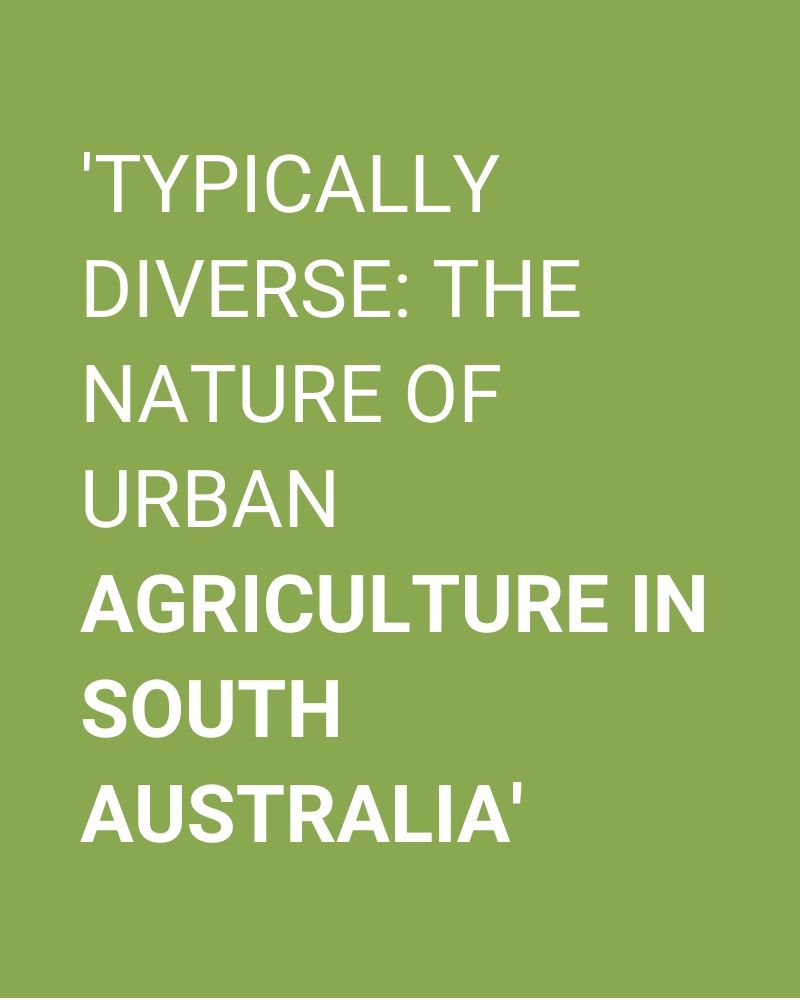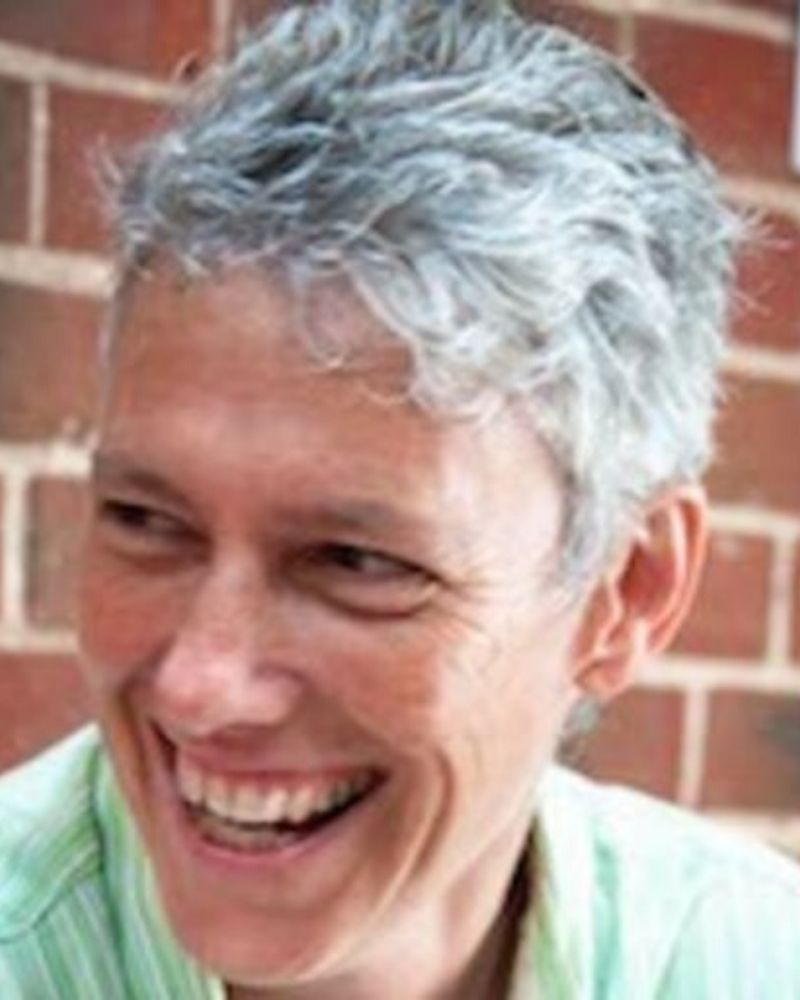In our food system, ‘Researchers’ are those who explore, measure and support all systems (including social, environmental, economic, political and farming) that impact your local food system.
Below you can read up on some of the latest urban agriculture research and learn how you might get involved and contribute to our collective understanding.
Did you know that the majority of published scientific articles aren’t freely available? To access many articles, you often must belong to a university or research organisation, or have to pay the journal for access. Below, we’ve tried to focus on research that is freely available for everyone.
BACKYARD FOOD GARDEN PRODUCTIVITY RESEARCH

Dr Georgia Csortan’s body of work
Dr Georgia Csortan (aka The Urban Ag Scientist) recently completed her PhD research on the productivity, resource efficiency and social value of urban food gardens in South Australia. She is also an SA Urban Food Network Connector.
Visit her full research here and access details on her Adelaide compost workshops here.

‘The case for citizen science in urban agriculture research’
This 2017 paper (by G. Pollard; R. Roetman & J. Ward) argues that, while much is known about community gardens, little research has so far focused on individual household food gardens and their potential impact on improving food security.
The report looks specifically at South Australia’s Edible Gardens project, a citizen science project developed to investigate the inputs (labour, costs and water use), and outputs (produce yields and value) of urban food gardens.

Dr James Ward’s body of research
Based in Adelaide, Dr James Ward is a full-time academic at the University of South Australia – and also an SA Urban Food Network Connector. He has a particular focus on sustainable food systems.
Topics of interest include: using wastewater and stormwater for urban agriculture, wicking beds, optimising diet decisions with urban agriculture computer models and living green roofs and walls.

‘Nature of urban agriculture in SA’ report
This 2018 paper (by G. Pollard; J. Ward & P. Roetman) explores the economic sustainability of urban agriculture by focusing on the physical, practical, and economic aspects of home food gardens in South Australia.
Although saving money is a top motivation for home gardeners, are current gardening practices supporting this aspiration?
COMMUNITY GARDENS & SOCIAL VALUE RESEARCH
‘Grow Your Own’ report
‘Grow Your Own: The potential value and impacts of residential and community food gardening’ was written by Poppy Wise in 2014.
The research is based on a literature review, a survey of 1,390 households across Australia and interviews with experts and community gardeners.

Growing Community: Starting and nurturing community gardens
This South Australian-based online booklet on how to go about starting and nurturing community gardens was written by Claire Nettle in 2010. It was commissioned (and is still promoted) by the South Australian Department of Health.

‘Beyond productivity’ report
A publication from the South Australian Edible Gardens project, this 2018 paper (by G. Pollard; P. Roetman; J. Ward; B. Chiera & E. Mantzioris) investigates the perceived health, social value and happiness benefits of urban agriculture by focusing on home and community food gardens in South Australia.
SMALL-SCALE IRRIGATION AND WATER USE RESEARCH

‘Water use efficiency in urban food gardens: Insights from a systematic review and case study’
Considering the scarcity of urban agriculture water use efficiency and water measurement literature, South Australia is presented as a case study in this 2018 paper (by G. Pollard; J. Ward & P. Roetman) to demonstrate the considerable diversity of water pricing, water sources and irrigation methods available to urban food growers.
The practical challenges of garden placement and the wide variety of cultivation techniques, water sources and irrigation methods are reviewed.
FOOD SYSTEMS & URBAN FOOD PLANNING RESEARCH

Fight Food Waste CRC
Based in Adelaide, the Fight Food Waste Cooperative Research Centre (CRC) brings together industry, research and the community to capitalise on Australia’s food waste opportunities.
The CRC runs three research and development programs to reduce food waste across the supply chain, transform unavoidable waste into innovative high-value co-products, and engage with industry and consumers to create change.

Future Food Systems CRC
Based in Sydney, the Future Food Systems Cooperative Research Centre (CRC) supports participants in optimising the productivity of regional and peri-urban food systems, taking new products from prototype to market and implementing rapid, provenance-protected supply chains from farm to consumer.
“This CRC will work across the food supply chain and incorporate innovations in protected cropping, advanced manufacturing, smart logistics and food science to underpin high-value industries in agrifood hubs,” Minister for Industry, Science and Technology, Karen Andrews, said when announcing the CRC in 2019.

Dr Sue Booth’s body of research
Dr Sue Booth is an academic and researcher with Adelaide’s Flinders University. Her topics of interest include food democracy, food banks in Australia and food insecurity.
‘Growing greener cities in Latin America and the Caribbean’
A report from the US Food and Agriculture Organisation (FAO) on the Medellín meeting in 2009, which proposed a new agenda for an urban transition toward social inclusion, improved quality of life, equity and sustainability.
For more, you can also visit the FAO’s urban agriculture page.
Help us uncover those working towards a regenerative
local food system. Do you know of something we should add here?
Email hello@saurbanfood.org
MEET OUR RESEARCHER CONNECTORS
‘Connectors’ are South Australians who volunteer their time to help link our network, providing information, contacts and connections to our members.
Dr James Ward
James is a full-time academic at the University of South Australia, where he is lucky enough to do a wide range of research in the hope of contributing to an informed vision of a more sustainable world. This work spans different scales, from global problems – chiefly limits to growth and constraints to world energy resources – through to local solutions, with a particular focus on sustainable food systems.
Have a question for James? Join our network to gain Connector access, then email hello@saurbanfood.org using the subject line ‘Researchers’.
Dr Georgia Csortan
Georgia has a background in sustainable environments and environmental science, specialising in quantitative, in-field measurements of the inputs and outputs of urban food production (urban agriculture).
She recently completed her PhD research on the productivity, resource efficiency and social value of urban food gardens in South Australia.
Have a question Georgia? Join our network to gain Connector access, then email hello@saurbanfood.org using the subject line ‘Researchers’.
Professor John Coveney
John Coveney is Professor of Global Food, Culture and Health in the College of Nursing and Health Sciences at Flinders University. Earlier in his career, Professor Coveney worked as a leading nutritionist and dietitian addressing regional, indigenous and international health issues.
He has research and education interests in public health nutrition; history of food and health; food policy; and social and cultural factors that influence food patterns and food intake.
Have a question for John? Join our network to gain Connector access, then email hello@saurbanfood.org using the subject line ‘Researchers’.









